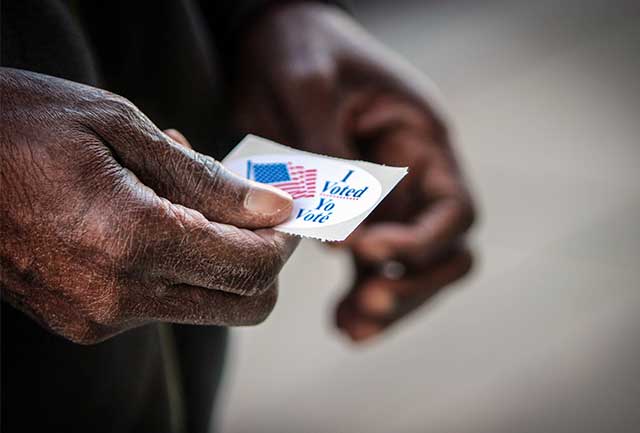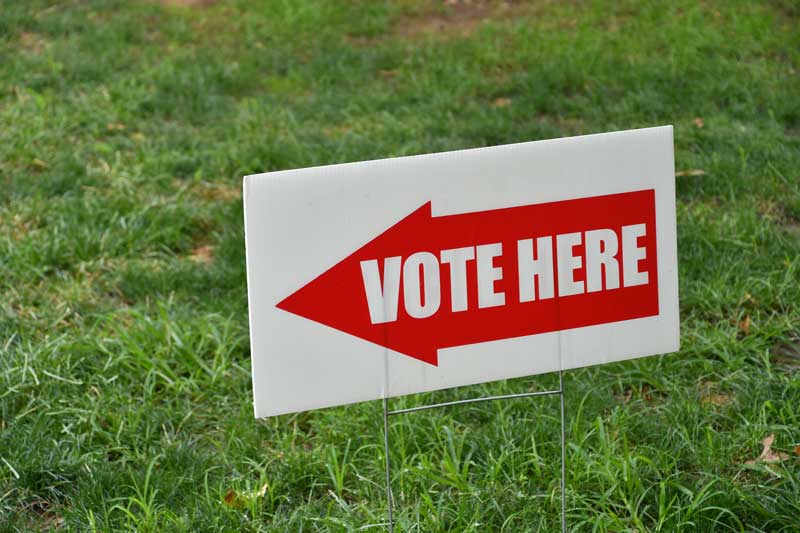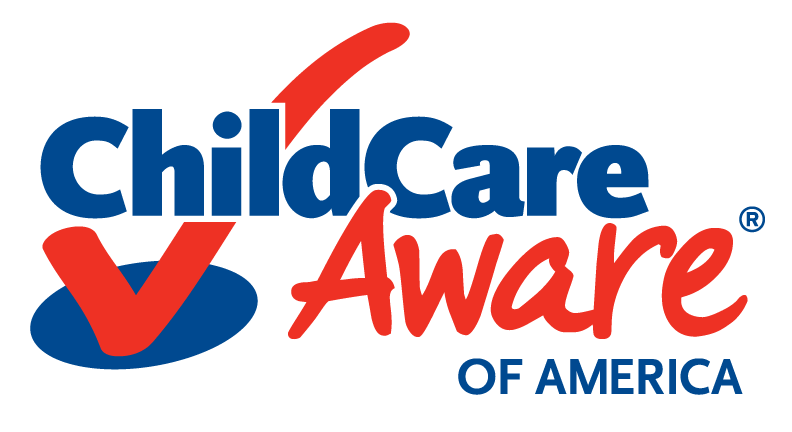Voter Education Guide
Ask Your Candidates about Child Care
This November, voters have a critical opportunity in every state to elect candidates to public office at all levels of government— from President to mayor, and everything in between. The winners of these elections will be positioned to make public policy decisions that will directly impact future generations at a time unlike no other. The pandemic continues to highlight the vital role child care plays for millions of children and families while simultaneously underscoring the precariousness of high-quality, affordable and accessible child care for all families. It has never been more important to ask candidates to speak to their policy plans for child care.

At Child Care Aware® of America (CCAoA), we have a vision that every family in the United States has access to a high-quality, affordable child care system. Child care is an integral part of children’s growth, development and educational advancement and creates positive economic impact for families and communities. Continuing to foster and grow these positive impacts requires comprehensive policies that are equity-driven, child-centered, family-engaged and community-focused, and CCAoA uses these four policy goals as our guiding principles to ensure policymakers are engaged in fixing our broken child care system so it serves all constituents.
How to use this guide:
Elections provide an opportunity to clarify the issues and ensure that our public officials understand what policy changes are needed to support accessible, affordable child care for all families. This issue guide is designed to help voters ask questions to learn more about candidates’ stances on child care policy and make informed decisions at the ballot box. Anyone can ask the questions included in this guide in situations like: public events (both in-person and virtual), over email, via social media, or by placing a phone call.
If you represent or work with a 501(c)3 nonprofit organization, learn more about how to talk to candidates during an election.
Use opportunities like public events (virtual and in-person) and social media to ask candidates where they stand on child care and share your child care story using the following questions:
-
What child care policies do you support that are equity-driven?
Background: Equitable early childhood education must lift up all children, giving them a fair shot at the future. It must not perpetuate – but instead reverse – the structural and institutional racism, poverty and lack of opportunity that exists in the U.S. Expanding access to all families is only one aspect for achieving equity in the child care system. The care itself must embrace and support all families, providing quality care that is culturally informed. One approach to assisting these families is to deliver business advice, fair subsidies and other supports to all child care providers, including family, friends and neighbor (FFN) and home-based family child care (FCC) providers. CCAoA strongly believes in supporting Child Care Resource and Referral (CCR&Rs) agencies and FFN/FCC providers by helping them start their businesses and meet critical health, safety, and quality standards.
COVID-19 has clearly exacerbated the inequalities that exist in the child care system. Child care educators— who are generally women and disproportionately women of color and immigrant women— will be among the most impacted by the pandemic. Failure to support them will leave providers without a workforce and families without providers on which to rely. CCAoA strongly supports an investment of $50 billion in funding for child care to meet the needs of child care providers, educators, and parents and to reflect the essential role child care plays in supporting our nation’s recovery from this crisis.
-
What will you do to support child care policies that are child-centered?
Background: Quality early childhood education nurtures the whole child, including their social, emotional, physical and cognitive development. Early childhood educators (ECEs) take a holistic approach to educating young children, building close, positive relationships with each child in their care. Studies show that access to high-quality care can help close the kindergarten achievement gap, leading to better educational outcomes throughout schooling. ECEs also naturally interface with the families of the children they care for and the experiences these families have with food insecurity, housing insecurity and health care. In addition, ECEs work to ensure their environments are safe by preparing their facilities to handle emergencies and natural disasters, and by improving infrastructure. Long-term analyses suggest that enrollment in quality early childhood education can increase adult earnings and lead to better health outcomes.
Children deserve a safe place to grow and learn and we must work toward a child care system with the health and safety of children as a baseline. CCAoA strongly believes that state and federal efforts to deregulate child care in order to “fix” the supply crisis put children’s health and safety at risk. Some states have successfully navigated the current crisis without having to roll-back regulations, while others have gone a step further and set aside funding to cover the cost of background checks for new employees. Unfortunately, other states have applied for federal waivers to health and safety standards throughout the pandemic, particularly around background check requirements, putting children and providers in harm’s way. More needs to be done to help providers implement the health and safety standards, especially as the global health crisis continues.
-
What child care policies do you support that are family-engaged?
Background: The actual experiences of families should guide the development of legislative and regulatory changes at all governing levels. To start, we must address affordability. CCAoA believes that Congress and the Administration must fully fund the Child Care Development Fund (CCDF) to help ensure we reach all eligible families and that this support ensures child care is affordable for families while appropriately compensating providers and programs. Anything less will leave families without the child care they need to fully participate in the economy.
States play a pivotal role in this effort, alongside the federal government. States can begin by increasing their matching fund contributions to the CCDF to further reduce waiting lists and get more children into subsidized care. State policies have the ability to raise the income cut-off for eligibility to accurately reflect the cost of living and the cost of child care within local communities. In addition, states have the responsibility to increase provider reimbursement rates, incentivizing providers to increase capacity and open more slots to subsidy-eligible families. These rates are also essential to supporting adequate cost coverage for providers, ensuring the sustainability of their businesses.
Throughout the pandemic, states have adopted temporary policies that better support all families, like eliminating family copays, extending redetermination policies, increasing income limits for initial eligibility for assistance, providing emergency child care at little or no cost, and providing enhanced reimbursement rates for providers.
-
What child care policies that are community-focused would you advocate for if elected?
Background: For child care policies to be relevant and sustainable, they must focus on the entire community and the role child care plays within it. In addition, child care must be accompanied by robust, well-funded complementary services, such as the Supplemental Nutrition Assistance Program (SNAP), Temporary Assistance for Needy Families (TANF), Medicaid and Children’s Health Insurance Program (CHIP) coverage, Early Head Start/Head Start (EHS/HS), Home Visiting (MIECHV), and more.
One key aspect of community-focused policy is the status of ECEs as professionals and experts in the field of child development. Too often, ECEs are dismissed as unskilled workers and their low wages reflect this societal perspective. States are overdue in ensuring ECEs can earn increased wages and have access to things like paid leave and healthcare, pandemic or not. Just a handful of states recently enacted temporary policies to support child care workers, like providing hazard pay, prioritizing them for COVID-testing, and enrolling ECEs in a state’s high-risk pool of its insurance plan, but these policies are not permanent shifts. ECEs must be fairly compensated and supported in their career development. To meet this goal, CCAoA supports an increase in the subsidy rate paid to providers to be at least 75% of the market rate, a living wage, comprehensive benefits, and professional development opportunities for child care providers.
-
What relief for the child care sector will you support if you are elected?
Background: As the COVID-19 health and economic crisis continues, the child care industry is pushed further towards the brink of collapse. Throughout the pandemic, the sector has adhered to public health guidance and ensured frontline personnel have access to care, however as the field moves towards additional reopening, and planning for the fall, additional support is needed to ensure child care programs, both center-based and family child care, outlast the pandemic.
It is becoming increasingly clear that there is no economic recovery without stabilizing the child care industry. Without robust federal investment in child care there will be significant barriers preventing parents from returning to work. Experts predict without federal support nearly 4.5 million child care slots are at the risk of disappearing.

Voting Resources
- Make sure you are registered to vote! CCAoA’s voter registration tool is quick and easy.
- Whether you are planning to vote in-person or by mail, make sure you know your voting rights.
- In response to the pandemic, states are changing election rules and deadlines. Learn if there is special guidance to be aware of in your state.
Additional Resources
If you would like to learn more about the issues outlined in this guide, you can check out the full CCAoA 2020-2022 Public Policy Agenda.
For more information on how COVID-19 is affecting child care and our recommendations for policymakers, you can explore our Coronavirus Hub.
For resources for organizations about how to follow the rules while doing voter registration, voter education, or advocacy work, visit Bolder Advocacy’s Resource Library.


